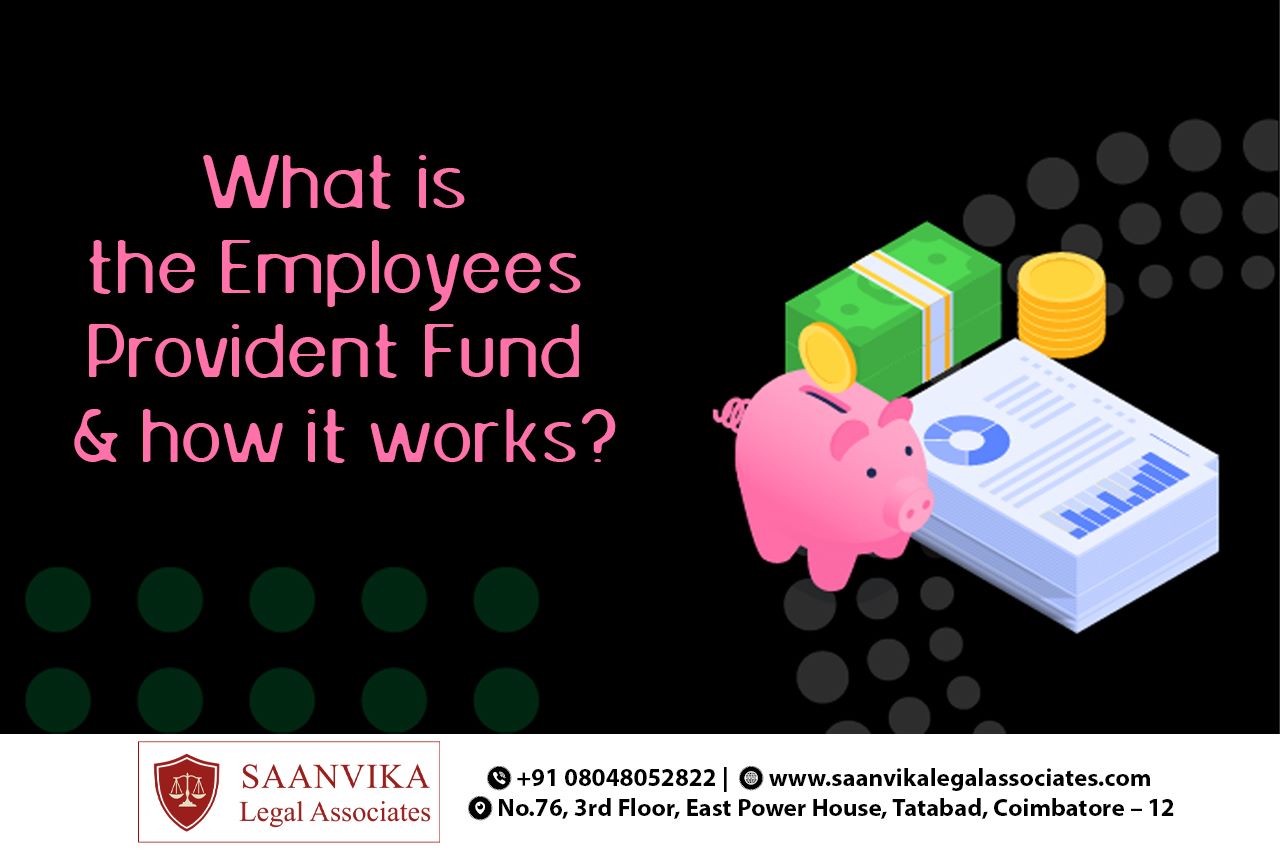
Employees Provident Fund/ working of Employees ...

Employees Provident Fund/ working of Employees Provident fund/ Types of provident fund/What is a provident fund/Best law firm in Coimbatore/ Best advocates in Coimbatore/ Best law service in Coimbatore/ Best legal consultation in Coimbatore/ Best legal services in Coimbatore/ Best lawyers in Coimbatore/ Online legal consultation. The Employees' Provident Fund (EPF) is a social security scheme implemented by the Government of India to provide financial security and retirement benefits to employees in the organized sector. It is regulated by the Employees' Provident Fund Organization (EPFO) and governed by the Employees' Provident Funds and Miscellaneous Provisions Act, 1952. Under the EPF scheme, both the employee and the employer contribute a fixed percentage of the employee's salary towards the fund. The current contribution rate is 12% of the employee's basic salary and dearness allowance. The employer's contribution is divided into two parts: 3.67% is allocated to the EPF account, while the remaining 8.33% is allocated to the Employee Pension Scheme (EPS). The accumulated funds in the EPF account earn interest, which is declared by the EPFO every year. The contributions, along with the interest, form a retirement corpus for the employee. The EPF scheme also provides provisions for partial withdrawals for specific purposes such as housing, medical emergency, education, and marriage. Upon retirement, resignation, or reaching the age of 58, employees can withdraw the EPF corpus, including the employee's and employer's contributions, along with accrued interest. Alternatively, employees can choose to transfer their EPF account when switching jobs to ensure benefits continuity. The EPF scheme offers financial security, retirement benefits, and savings for employees, helping them build a corpus over their working years. It serves as a long-term investment and social security measure to support employees during their retirement years. You can get the law services of Saanvika Legal Associates like Trust deeds, Financial law, Insurance law, Environment, Consumer, Property, Banking Tax Cyber, Constitutions, Labor law, Civil, Criminal, Family, Property registration, Getting Doc, and many others. Additionally, you can get to know about Legal notice, documentation, Legal registration, Property organization, establishing companies, Family legal consultation, Civil legal consultant, Criminal legal consultant, and Litigation for finance property from our expert lawyers.
Keywords
Subscribe for latest offers & updates
We hate spam too.


